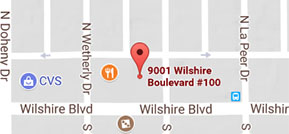Hernia Repair
A hernia is the result of a hole or tear in the abdominal wall fascia. Fascia is a layer (or sheet) of connective tissue in everyone’s abdominal wall that extends from the chest area down below the groin. The fascia layer lies in between the muscles of your abdominal wall. Fascia is important because it is the strength layer of your abdominal wall and is essentially responsible for keeping the contents of the abdomen in place. A breach (tear) or hole in this connective tissue is, by definition, a hernia. Hernias form as a result of a continued weakening of the abdominal fascia until a hole develops much like a bulge forming in a tire from repeated wear and tear. This weakening or tear allows for the inner lining of the abdomen and associated abdominal contents (intestine or other organs) to push through the hole, leading to a lump or bulge.
A hernia, by definition, is the actual hole in the fascial layer. The bulge occurs when the abdominal contents come through the hole. Any activity that increases the pressure in the abdomen, such as exercise, straining, standing, or walking, increases the pressure in the abdomen and, thus, can push the abdominal contents through the hole, resulting in a bulge or lump. In most people, when they lie down, the bulge or lump disappears. This is because, when lying down, the abdominal pressure is reduced, and the contents of the hernia fall back into the abdominal cavity. This is called a reducible hernia, which means that the contents of the hernia can still be pushed back into the abdomen. As hernias progress, however, the portion of the small intestine retreating into the hernia can become trapped. This is called a non-reducible or incarcerated hernia and can be particularly painful.
A hernia in of itself does not cause pain. However, when abdominal contents protrude through the hole, discomfort or pain may result as abdominal contents get pinched or momentarily stuck in the hernia. A lump or bulge may also be noticeable. However, if the hernia is small, one may have symptoms without a noticeable bulge or lump.
Hernias do not go away. In fact, they tend to progressively enlarge and cause more pain and discomfort. As the hernia enlarges, the surgery to repair the hernia may become more complex and difficult – sometimes even requiring emergency attention. That’s why a hernia should be usually addressed at the first signs of onset – discomfort and/or pain and/or bulging – because the procedure will be more straightforward, recovery will be shorter, and the chance of the hernia returning will be decreased drastically.




